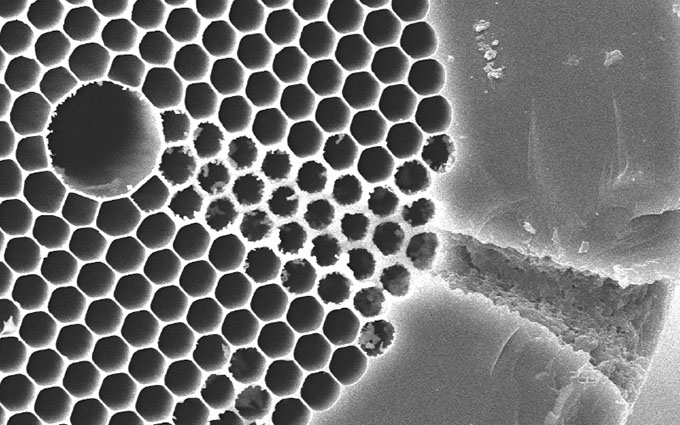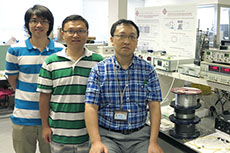Led by Prof. Jin Wei, a research team at the Department of Electrical Engineering successfully developed an ultra-sensitive gas sensing technology, a breakthrough in the field of fibre-optics sensing. They have developed the photothermal phase modulation in a gas-filled Hollow-Core Photonic Bandgap Fibre (HC-PBF) to enhance the sensitivity of gas detection and the dynamic range in orders of magnitude.
Sensitivity of conventional absorption-based fibre optics gas sensors is less than 1ppm in general with their dynamic range limited to three orders of magnitude. Overcoming such limitations, this new technology can achieve high probing sensibility at ppb level and dynamic range of nearly six orders of magnitude. The use of HC-PBF has greatly reduced the beam size and increased interaction length that can enhance the overall efficiency of the photothermal phase modulation by over five orders of magnitude. The highly-efficient fibre-optic photothermal device is considered a new class of practical optical sensors with compact size, high ultra-sensitivity and capability for remote and multiplexed multi-point detection and distributed sensing.
A paper on this kind of novel fibre-optics gas sensor was published in the online journal Nature Communications by the Nature Publishing Group.

